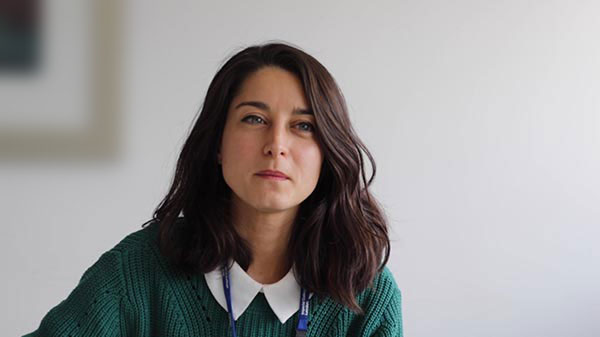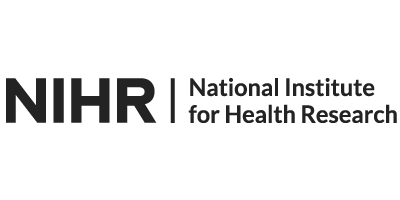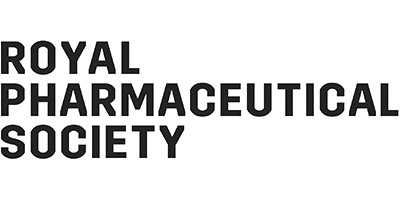
The TouchDose Study:
Participant and Patient Information (Draft)
This page provides information on the TouchDose study for patients, family and carers, and to the healthcare professionals at St Mary's Hospital (Paddington) participating in the study.
We have included information for both families and healthcare professionals on the same page for greater transparency, and to encourage each group to learn as much as possible. The video explainers below are intended to help parents, carers and older children understand the study.
Contents
1. Video summaries
These short videos explain the study in non-technical language, and are suitable for older children and adults. (View transcripts here).
01:23

The Challenge
01:17

Our Solution
01:43

The Study
2. General information
In paediatrics, intravenous (IV) medications need to be prepared on-demand according to the age and weight of the child. This a complex and time-consuming process and we know that no matter how good the doctors and nurses are and how carefully they do this, mistakes are made.
TouchDose is a smartphone and tablet app that aims to make delivering IV medication safer and faster. Preliminary results from a pilot study showed evidence for this. Importantly, TouchDose does not change what medication the child will be given, it simply aims to improve the giving of the medications by providing clear guidance to the doctors and nurses.
The aim of the TouchDose study is to investigate the use of the app to determine whether it improves safety and performance.
What will happen?
Research nurses from the study will observe doctors and nurses on the ward as they prepare and give IV medication and collect data for the study. Initially, clinical staff will be monitored as they use current methods and then as they use the TouchDose app, once they have been adequately trained. Data from the two periods will be compared. If the app is found to be at least as safe and as fast as standard practice, we will continue developing the app and promote it to other wards.
What information is collected?
We will record the medication given and details on how it was given so you may see the research nurse at the bedside. Information on the child including, age, weight, name and hospital ID number will also be captured. A full list is provided here.
Who is organising and funding the research?
The study is funded by the National Institute for Health Research via the Imperial Patient Safety Translational Research Centre.
Who has reviewed the study?
This study was given favourable ethical opinion for conduct in the NHS by the Imperial Joint Research Compliance Office (JRCO) and the Health Research Authority (HRA) (IRAS xxxxx).

3. Information for families and carers
How will the information be managed?
The information will be securely transferred and stored. Any analysis and public reporting will only use anonymized information. The name, hospital ID number or other personal details of the child will only be available to NHS medical staff who should have access and will be kept strictly confidential. Personal details are needed for the app to function and create personalised medication guidance.
Does my child need to be included?
No. If you do not want us to collect your child’s information for the study, you can inform your nurse or doctor at any time and this will be recorded in your child’s medical notes. If the study information has already been collected, it will be identified, stored separately and securely and will not be used for research purposes. It will only be accessed by the research nurse. The best method to opt out is to email us on XXXX@nhs.net including the full name of the patient and their date of birth. If you would like to give a reason for your decision to opt out it would be appreciated by the team, but this is not necessary. As an alternative to email, you can opt-out by filling in an 'opt out form', which can be provided to you by your nurse or which can be downloaded here. Please hand in the forms to your nurse. We may need to contact you if any key information is missing or unclear.
Patient records may still be stored for audit purposes, in line with GCP regulations. A log of patients who have opted out will be kept securely in encrypted, password-protected files. Access will be limited to the research nurses in the TouchDose team.
Why have I not been asked for consent?
This study is primarily looking at doctors and nurses workflow, and how we can improve efficiency and safety in their processes. Beyond this, the care and medication children will receive throughout the trial should not be affected by the trial. Through our ethics review process we have therefore determined that while we do need consent from participating nurses, we should not collect consent from parents and guardians. However because it is necessary to include patient’s identifiable data in order to measure the success of the intervention, we have provided an ‘Opt Out’ for parents and guardians as you may not wish for your child data to be used for research purposes. Opting out will not affect the care children receive, but will stop their personal data being used in the research analysis.

4. Information for healthcare professionals.
Why have I been invited to participate?
You have been asked to participate because you are a member of staff at St Mary’s hospital who is involved in the preparation and administration of injectable medications to paediatric patients in your ward. As part of this trial we will be implementing TouchDose to the ward, for you and your colleagues to use when preparing and administering a selection of injectable medications.
What do I have to do?
During the study, research nurses will intermittently spend time in the ward observing the preparation and administration of injectable medications. During the control period, you are to continue your work as normal and the research nurse will observe you and any other colleagues who have consented. The research nurse will observe the preparation in the medication preparation room and accompany you to the patient’s bedspace to observe the administration of the medication to the patient. Once the intervention period begins and you have been trained and assessed on the use of TouchDose, the observation periods will continue as before but you will use TouchDose and/or the TouchDose printed labels to assist in the preparation and administration of injectable medications.
Throughout the study period, in both the control and intervention periods the research nurses may provide a simulated medication order to be prepared and administered as if for a patient. This will allow for the study to assess less commonly prescribed medications or methods of preparation and administration.
With your help we hope to determine the safety and effectiveness of TouchDose compared to current practice.
Do I have to take part?
While you will have to follow the study protocol, which involves the use of TouchDose during the intervention period, you can decide whether the research nurse observes and collects study outcome data on you or not. Consenting to observations in any study is entirely voluntary, and you may choose to withdraw your consent at any time. At the start of an observation period on the ward, the research nurse will verbally confirm your consent to be observed. The research nurse will observe your practice and collect data onto a paper form with as minimal disturbance as possible.
If you do choose to withdraw your consent, no further observations will include you. If you withdraw after data has been collected, the data up until that point will still be used but, as with all data collected, your identity will remain confidential at all times. You will be given the opportunity to ask the research nurse any questions before consenting to participate in the study.
What are the possible disadvantages and risks of taking part?
During the observations, the research nurse will be observing how you calculate, prepare and administer medications. Although we know that medication errors are common, if when we are evaluating the anonymised data from the study, we find a medication error has been made, this will be reported using the hospital incident reporting system ‘(Datix) in line with the current usual practice on the ward.
If a medication error is detected by the research nurse during an observation and the patient is felt to be at risk from harm, the research nurse will discretely intervene to allow for the error to be corrected.
What if something goes wrong?
In the unlikely event that you are harmed by taking part in this research project, there are no special compensation arrangements. If you are harmed due to someone’s negligence, then you may have grounds for a legal action. Regardless of this, if you wish to complain, or have any concerns about any aspect of the way you have been treated during the course of this study then you should immediately inform the Chief Investigator. The normal National Health Service complaints mechanisms are also available to you. If you are still not satisfied with the response, you may contact the Imperial AHSC Joint Research Compliance Office.
Will my taking part in this study be kept confidential?
All information which is collected will be kept strictly confidential. Any information about you will have your name removed so that you cannot be recognised from it. Your involvement in the study will remain confidential.
The only time we would ever identify a participant is as described above under “What are the possible disadvantages and risks of taking part?”
Data will be kept in accordance with the Data Protection Act and the policy of Imperial College London on the storage and destruction of confidential data. Imperial College policy states that all data relating to research is kept for 10 years.
What will happen to the results of the research study?
The results of the study will be written up in a research report, and we may use your anonymised data to publish scientific reports with important discoveries, and communicate our findings to the public through our website and other sources. Published reports will not mention individuals and you can ask for details of this report to be given to you.
5. Contact the study team
TouchDose, Helix Centre
Department of Surgery and Cancer
St Mary’s Campus, Faculty of Medicine
Imperial College London
Norfolk Place, London W2 1NY
6. Our funders and partners
This study is funded by the NIHR. We have partnerships with the BNF for Children and The Royal Pharmaceutical Society to create TouchDose. The clinical trial is delivered between Imperial College London and Imperial College Healthcare NHS Trust.








